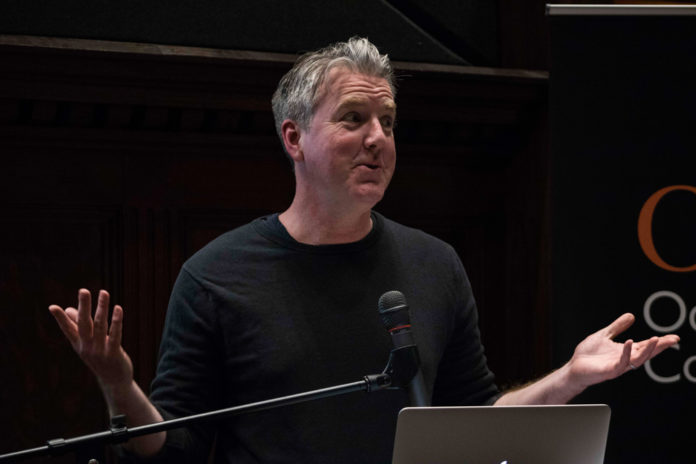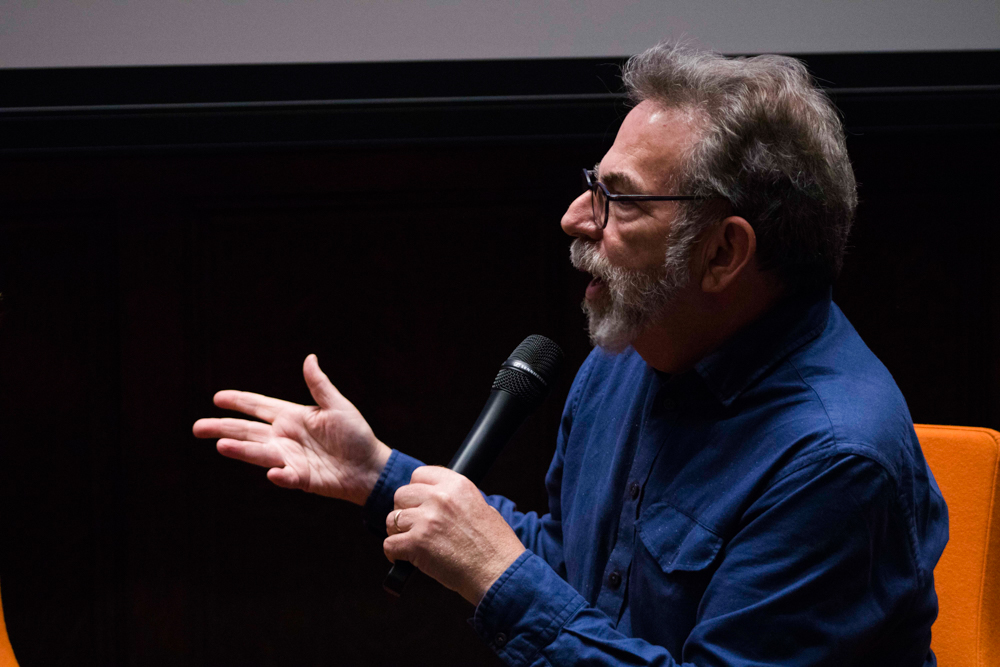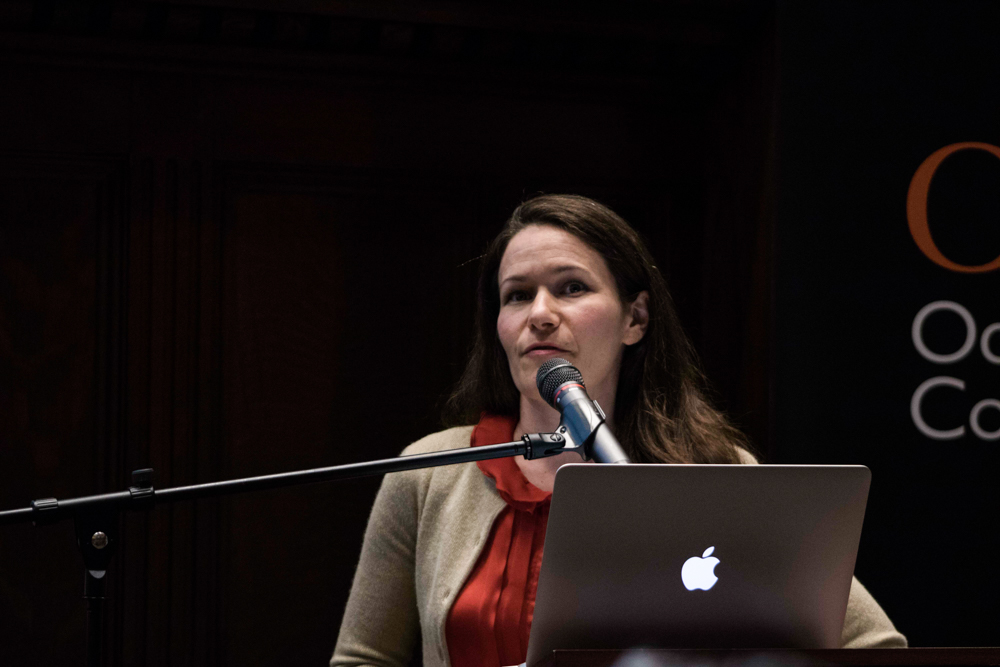
The final installment of the 2019 “3rd LA” speaker series took place in Choi Auditorium at Occidental College April 17. Titled “Turn Off the Sunshine: Shade as an Equity Issue in a Warming Los Angeles,” the event featured guest speakers and students from the Urban & Environmental Policy class “(Re)Designing LA” who discussed the social and environmental issues posed by the city’s lack of shade. According to professor of the practice and chief design officer of Los Angeles Christopher Hawthorne, the speakers discussed shade and equity through a variety of lenses, ranging from scientific to architectural, while students read excerpts from various works that characterized the city’s relationship with the sun.
Organized by Hawthorne, the 3rd LA series features a wide array of speakers who gather to discuss issues of society and urban design in Los Angeles. The prior 2019 installments included an event about Los Angeles’ architectural identity and another regarding 1980s and 1990s architecture.
Hawthorne opened the event by providing an introduction to the idea of shade as an equity issue. According to Hawthorne, the lack of shade poses a critical threat to the city and places pressure on poor and underserved communities.
“I think the easiest way to explain it is to say that those fellow citizens who don’t have the luxury of getting into a car or an Uber and Lyft on … those days of intense heat … we need to have a design strategy across the city that is thinking about their needs as much as they’re thinking about anyone else’s,” Hawthorne said.
Following Hawthorne’s remarks, Andy Lipkis and Edith de Guzman of the non-profit organization TreePeople took the stage to discuss their research. The two work to promote the growth and maintenance of trees in Los Angeles through community organizing, research and collaboration with government agencies.

Lipkis’ lecture focused on the dangers posed by the lack of shade in Los Angeles. According to Lipkis, Los Angeles’ heat can prove lethal even in the winter. Lipkis added that the lack of shade disproportionately affects communities of color.
“If you are Latino in Los Angeles, you are 46 percent more likely to die on the fifth day of a heat wave,” Lipkis said. “If you’re African American, you are 48 percent more likely to die than Anglo people. It’s not about your culture, it is about environmental injustice.”
Lipkis transitioned the lecture to de Guzman, who presented research from TreePeople. According to de Guzman, Los Angeles has an abundance of heat-retaining surfaces in addition to its lack of shade. De Guzman said the research conducted by herself and TreePeople focuses on how increasing tree canopies and utilizing reflective surfaces could mitigate the effects of climate change on the city.

According to de Guzman’s research, even variations of 2–3 degrees Fahrenheit could save lives.
“This is literally life and death for certain sensitive populations: young, the elderly, homeless people, outdoor workers,” de Guzman said. “In terms of mortality reductions, we saw 25 percent or more depending on the scenario, which means that we would be saving dozens of lives in the worst heat waves.”
After Lipkis and de Guzman, two new speakers took to the stage: Sahra Sulaiman, the communities editor for Streetsblog LA, and Gerdo Aquino, the chief executive of the architectural firm Sasaki, Walker and Associates (SWA).
Sulaiman discussed the issue of shade from the perspective of a journalist observing the city. According to Sulaiman, part of the city’s shade issue comes from citizens’ inability to control their own spaces and have a say in local developments.
“Who are we making shade for?” Sulaiman said. “And how do you make sure that everybody feels like what you’re providing is for them? Because a lot of what’s happening right now … is this sort of question of who gets to control the public space.”
Aquino’s lecture focused on how landscape architects can help the city mitigate the effects of heat and climate change. Aquino said developers need to prioritize practical developments that align with the local community’s needs by featuring natural and artificial shade.
“It’s not so much about beauty anymore,” Aquino said. “We need to think about [practicality] and the [community] first before the design can really come to fruition.”
The event concluded with a discussion including Hawthorne, Sulaiman, Aquino and Jennifer Pope McDowell, the associate director of infrastructure in the Mayor’s Office of City Services. McDowell spoke about the complex bureaucracy of city services that works to implement infrastructural changes such as shade. The three guests agreed that the city must simplify and consolidate its departments in order to bring about changes such as new shade developments.
In reflecting on the 2019 3rd LA series, Hawthorne said he felt pleased by the program’s accomplishments. According to Hawthorne, the 2019 events all reached capacity and received praise from the public.
“Since we started the event series here at Oxy, we have a sense that the public is very hungry for a conversation about where the city is going,” Hawthorne said. “The people have a very strong sense that the city is changing … but they’re really eager to understand what’s driving those changes and what they mean for them and their communities.”
The 3rd LA series will continue Spring 2020.
![]()






























